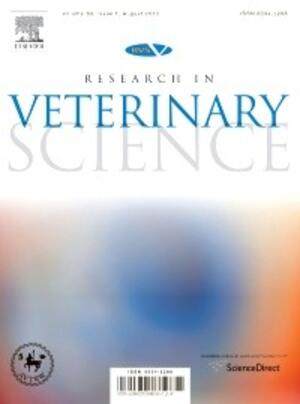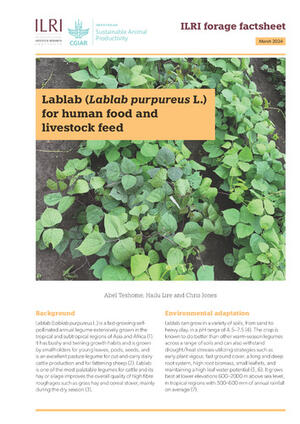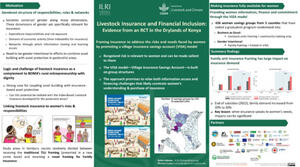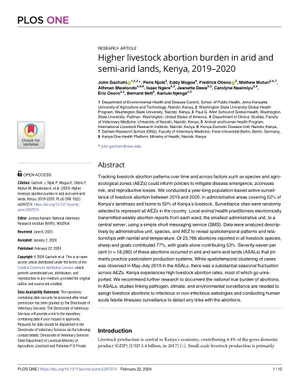
Beef value chain situation analysis for Uganda
Abstract
Beef is a major source of animal protein across the globe and its consumptions increases annually. Globally beef consumption is expected to reach 72 million t by 2025 from 70 million t in 2021 (OECD–FAO 2021). In Africa annual beef production was over 45 million kgs in each of 26 countries (FAOSTAT). In Uganda beef production had highest growth rate of 6.5% between 2001 and 2010 (FAOSTAT) and in 2018 was estimated at 217 million kgs (UBoS 2018). For the past 50 years, beef consumption in Uganda has been growing at a rate of 2%. The growth of the sector presents opportunities that can be harnessed for economic growth, increased revenue, employment and improved livelihoods. However, development of interventions for harnessing economic growth requires an in depth understanding of the sector and the value chain dynamics therein. To this end, ILRI commissioned a situational analysis of Uganda’s beef sector to provide relevant information for decision-making. The study relied on secondary information, databases and some key informant interviews. Information was obtained for all the segments of the beef value chain and its enablers. Information on quantities, quality, systems, costs, prices, markets, seasonality, challenges, opportunities and projections was obtained and synthesized; ultimately, potential intervention areas were identified.
Information on beef production and consumption showed increasing trends with production in 2020 at 217 million kg and annual growth rate at 1.9% (FAOSTAT). Estimated number of cattle in Uganda was 15.5 million in 2020 with beef cattle mainly reared under the agropastoral system. Main beef imports into Uganda are hides and skins (over 1,000 t/year) and processed meats (7 t in 2021—URA). Main beef exports from Uganda are live cattle to neighbouring countries. Potential for exports of Ugandan beef is largely hampered by failure to meet safety and hygiene standards and failure to manage regular outbreaks of foot and mouth disease (FMD). However, actual beef production is limited by the existing breeds whose mature weight is about 149 kg/head compared to over 600 kg/head of the proven beef breeds. Natural pastures are the major feed resource for beef production in Uganda, however, producers close to urban locations widely use agro-industrial by-products. Access to water across the cattle corridor, in central and SW Uganda, for 66% of the producers is through on farm valley tanks. However, these valley tanks have earth walls and floors and are prone to silting and as such require upgrading. It is for these kinds of improvement areas that producers would require credit. Currently there exists an agricultural credit facility where farmers can access credit. Beyond production, beef processing is still minimal, and this segment of the beef value chain needs to be incentivized to attract more actors. The cost of production needs to be addressed as beef product prices in Uganda are slightly higher than in the neighbouring countries, hence reducing the competitiveness of the sector. Growth scenarios for the sector adopted from FAO depict both positive and negative scenarios which is a healthy provocative approach that generates serious reflection. The desired scenario would be one that results from good governance and good economy with some adaptations such as management of the potential effects of over consumption of red meat and maintaining populations’ self-reliance, despite the economic growth. The study concludes by identifying follow on activities from recently concluded projects in the sector for quick gains to propel the sector forward by strategically addressing critical bottlenecks in the sector partly by unlocking local and external markets and incubating businesses along the value chain to effectively supply these markets.
Citation
Mubiru, S., Marshall, K., Lukuyu, B., Oba, P., Ahumuza, R. and Ouma, E. 2024. Beef value chain situation analysis for Uganda. ILRI research report 120. Nairobi, Kenya: ILRI.










